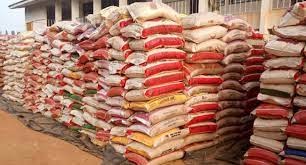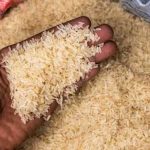The price of a 50kg bag of rice has fallen to N58,000 in parts of Nigeria, particularly in remote areas, as a surge of imports from the Republic of Benin hits the market. This development follows a report by S&P Global, which attributes the trend to an overflow of supplies into West Africa after India removed export duties on parboiled rice.
Rice prices have tumbled from highs of N80,000 per 50kg bag to N58,000, driven by a flood of Indian rice entering the Benin Republic and, subsequently, Nigeria. According to Platts, part of S&P Global Commodity Insights, warehouses in Benin are filled to capacity with rice imports, reflecting the impact of India’s revised trade policy. Between September and December alone, India exported around 2.11 million metric tonnes of parboiled rice to West Africa, a sharp increase from the 720,000 metric tonnes recorded during the same period in 2023. For the entirety of 2024 so far, India has exported approximately 5.35 million metric tonnes to the region, compared to 3.9 million metric tonnes the previous year.
Market players report a quiet and bearish mood across West African markets. Despite the price slump, demand for rice has not risen in response, with buyers choosing to wait and observe the market for signs of price stabilisation. Traders noted that a significant uptick in demand may only occur towards the festive season later in the year.
In Nigeria, which remains the largest consumer of rice imported through the Benin Republic, both local and imported rice prices have dropped sharply in recent weeks. Locally produced rice, once priced between N80,000 and N90,000 per 50kg bag, is now selling at about N60,000. Indian imported rice prices have also softened to around N80,000.
In border towns across Ogun State, the situation is even more pronounced. Due to their proximity to Benin, rice prices have fallen below N50,000, creating an active market despite Nigeria’s official ban on rice imports. The Nigerian Customs Service continues its battle against rice smuggling, which remains rampant despite regulatory efforts.
Nigeria’s role as the major consumer of rice imported into Benin underscores the complex trade dynamics shaping West Africa’s agricultural markets. As prices continue to decline, the coming months will reveal whether the region’s rice demand will rebound or if market caution will persist.










